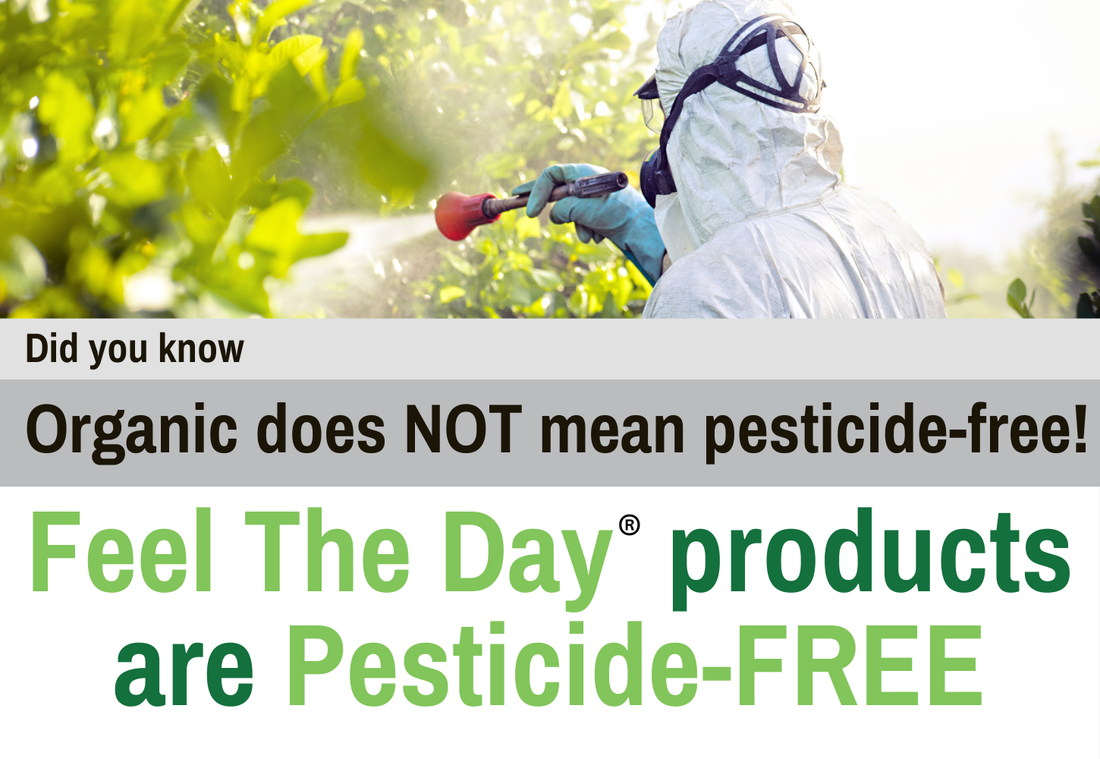
Feel The Day mushrooms are Better than Organic!
Organic produce does NOT mean Pesticide-Free
Organic produce is often marketed as the healthier and more environmentally friendly option, but it's important to understand that "organic" does not mean "pesticide-free." In fact, there are several reasons why "pesticide-free" produce might be a better choice than organic produce. Here are some key points to consider:
Organic Produce is Not Pesticide-Free
- Organic farming does allow the use of certain natural pesticides. These are derived from natural sources but are still chemical substances intended to kill pests. "Natural" does not mean healthy. Mercury is natural, but you don't want to ingest it.
- Studies have shown that organic pesticides can sometimes be used in greater quantities because they may be less effective than synthetic pesticides .
Higher Pesticide Use in Organic Farming
- To combat pests effectively, organic farmers might need to apply natural pesticides more frequently. This means that organic produce can have higher levels of pesticide residues than conventionally grown produce treated with more effective synthetic pesticides.
- Research from the University of Guelph found that organic pesticides, such as those containing rotenone or pyrethrin, need to be used in higher amounts and more frequently, potentially leading to greater pesticide residue on the produce .
Health Implications
- The perception that organic produce is free from harmful chemicals is misleading. The increased use of natural pesticides could result in consumers ingesting more chemicals than they would from conventionally grown produce.
- A review by Winter and Katz (2011) found that both organic and conventional farming practices use pesticides, and both can leave residues on produce. The key difference lies in the type and frequency of pesticide application, not the absence of chemicals.
"Pesticide-Free" is a Safer Bet
- Opting for produce labeled as "pesticide-free" ensures that no chemical pesticides, natural or synthetic, were used during the growing process. This reduces the risk of ingesting harmful residues.
- Pesticide-free farming practices focus on alternative pest control methods, such as crop rotation, biological pest control, and integrated pest management (IPM), which are more sustainable and environmentally friendly.
While organic produce has its benefits, it is crucial to understand that it is not synonymous with being free from pesticides. For those looking to minimize their chemical intake and support environmentally sustainable farming practices, choosing "pesticide-free" produce is a more effective and health-conscious choice. Feel The Day® mushrooms are all certified Pesticide-Free!
References
1. University of Guelph. (2010). Organic pesticides not always ‘greener’ choice.
2. Winter, C. K., & Katz, J. M. (2011). Dietary exposure to pesticide residues from fruits and vegetables.
3. Bahlai, C. A., et al. (2010). Impact of natural and synthetic pesticides on the biology of the multicolored Asian lady beetle.
4. National Pesticide Information Center (NPIC). (2021). Organic Pesticides.
5. Environmental Protection Agency (EPA). (2017). Copper Compounds.